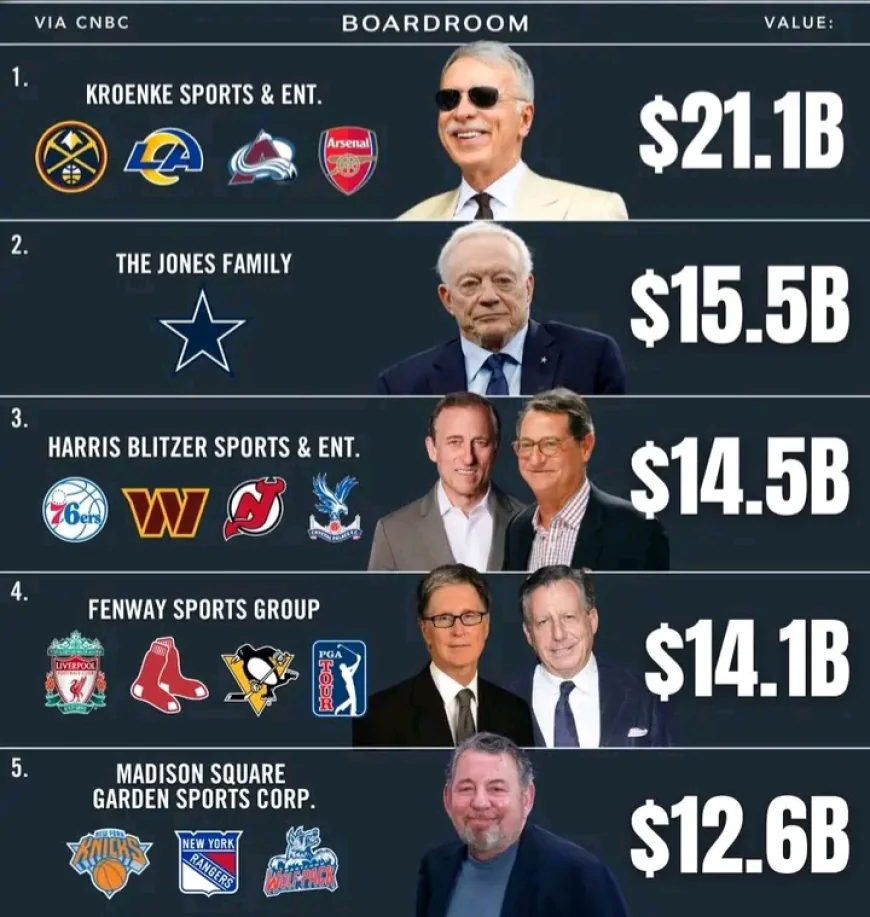Kroenke tops $21.2B as global sports empires boom
From Pitches to Profits: Billionaires Reshape the Sports World

The modern sports world is no longer just about wins and trophies—it's about consolidation, capital, and billion-dollar empires. Like Silicon Valley’s tech giants, today’s leading sports conglomerates are centralising operations across continents and leagues, unlocking unprecedented efficiencies and profits.
Kroenke Sports & Entertainment tops the global rankings with an eye-watering valuation of $21.2 billion. Its vast portfolio spans four major leagues—the NFL (Los Angeles Rams), NBA (Denver Nuggets), NHL (Colorado Avalanche), and the Premier League (Arsenal FC). This sprawling empire, built by American billionaire Stan Kroenke, exemplifies the power of scale in modern sport.
Hot on Kroenke’s heels is Harris Blitzer Sports & Entertainment at $14.6 billion, followed closely by Fenway Sports Group (FSG), valued at $14.2 billion. FSG’s strategic moves continue to pay dividends. In 2021, the group added basketball legend LeBron James, businessman Maverick Carter, and investor Paul Wachter to its ownership circle, with the trio trading their stake in Liverpool FC. That deal was paired with a major investment from RedBird Capital, giving the group fresh firepower to expand its sporting footprint.
The frenzy of acquisitions shows no signs of slowing. In June 2025, billionaire Mark Walter shook the basketball world by agreeing to purchase a controlling stake in the Los Angeles Lakers in a deal reportedly worth $10 billion—a new benchmark for NBA ownership. Not to be outdone, Woody Johnson, owner of the NFL’s New York Jets, secured a 43% stake in Premier League side Crystal Palace, marking another transatlantic play in the ever-globalising game.
Industry analysts say the centralisation trend is about long-term dominance. Owning multiple teams across major leagues allows these groups to streamline operations, negotiate stronger media rights, cross-leverage fan bases, and multiply revenue through merchandising, sponsorship, and real estate.
With tech-like strategies, sporting empires are blurring the lines between athletic competition and corporate conquest. For fans, this means bigger brands, flashier productions, and perhaps a little less local charm—but the business of sport has never looked more lucrative.


